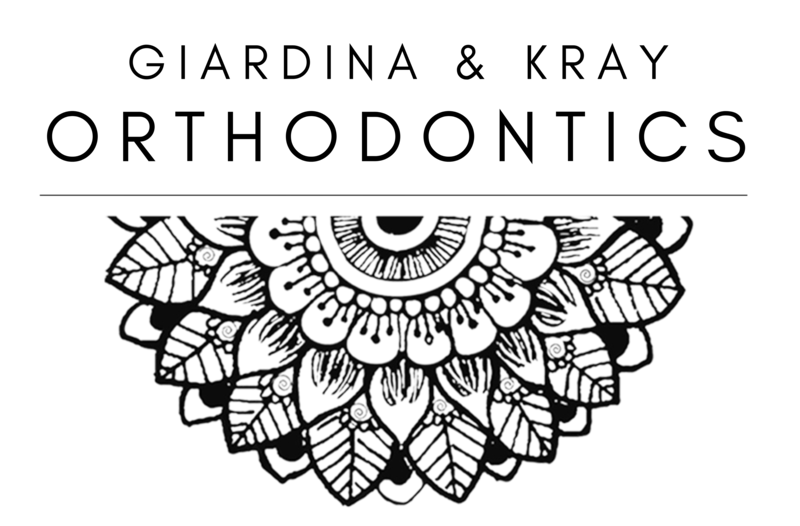The decision to undergo orthodontics is a significant one. Knowing what to expect is the key to successful treatment. Here, Dr. Frances Kray, Dr. Julia A. Giardina and our team answer some of the most FAQs about orthodontics so you can be well-informed.
Which treatment is the fastest?
You may have heard that one orthodontic option works faster than another. In reality, most options take about the same amount of time. The total length of treatment depends on the severity of your misalignment. According to the American Association of Orthodontists, the average length of treatment is 22 months.
Should I choose braces or clear aligners (Invisalign or Clarity)?
Traditional braces are tried-and-true, but the technological advances associated with Invisalign® and Clarity® have caused clear aligners to gain popularity over the past few decades. Both treatment options can correct most of the common orthodontic issues, including gapped teeth, overlapping, and crowding.
Am I too old for braces?
No! Orthodontic treatment offers a wide range of benefits for patients of all ages. In fact, one in four orthodontic patients are adults. Our team can help you achieve and maintain a straighter, more beautiful smile, no matter what your age.
Can I wear braces even if I’m missing teeth?
Yes, it is possible. However you will need to meet with our doctors to discuss a personalized treatment plan. In some cases, braces can simply close down the space. However, it may be necessary to explore replacement solutions as well. Our team can determine what should be completed, and in what order.
Do braces hurt?
It is common to experience some level of discomfort, especially when your braces are first placed. However, any tenderness can be mitigated with over-the-counter pain relievers, such as acetaminophen.
Do you take insurance?
Yes. Our team is in-network with Delta Dental, but we also file out-of-network, too. Our financial experts are happy to serve as the liaison between you and your dental insurance company and file claims on your behalf.
How often should I brush my teeth?
Patients who are undergoing orthodontic treatment should brush their teeth at least three times a day, about 30 minutes after meal times. This is essential, as it helps remove food particles and debris that can become stuck between the teeth and the braces. You should also floss at least once daily.
Do I still need to see my general dentist?
Yes, absolutely. Dr. Kray and Dr. Giardina work closely with your general dentist to ensure you receive the highest level of care. You will still need to see your dentist for routine exams and cleanings to keep your teeth and gums healthy during treatment.
Can I still play contact sports?
Wearing braces won’t prevent you from playing contact sports. However, our team suggests exercising caution. If you play sports, we highly recommend that you wear a custom mouth guard to protect your appliance – and your teeth – from damage.
Why wouldn’t I be able to undergo orthodontic treatment?
Anyone who undergoes orthodontic treatment should have healthy teeth and gums. This means that you should not have extensive tooth decay or gum disease. If these problems are present, they will need to be addressed prior to treatment. Poor oral health can seriously negate the results of orthodontic treatment.
FAQs
The decision to undergo orthodontics is a significant one. Knowing what to expect is the key to successful treatment. Here, Dr. Frances Kray and our team answer some of the most FAQs about orthodontics so you can be well-informed.
Which treatment is the fastest?
You may have heard that one orthodontic option works faster than another. In reality, most options take about the same amount of time. The total length of treatment depends on the severity of your misalignment. According to the American Association of Orthodontists, the average length of treatment is 22 months.
Should I choose braces or Invisalign?
Traditional braces are tried-and-true, while Invisalign® has gained in popularity over the past few decades. Both treatment options can correct most of the common orthodontic issues, including gapped teeth, overlapping, and crowding. In severe cases of misalignment, Dr. Kray may recommend conventional braces over Invisalign for best results.
Am I too old for braces?
No! Orthodontic treatment offers a wide range of benefits for patients of all ages. In fact, one in four orthodontic patients are adults. Our team can help you achieve and maintain a straighter, more beautiful smile, no matter what your age.
Can I wear braces even if I’m missing teeth?
Yes, it is possible. However you will need to meet with Dr. Kray to discuss a personalized treatment plan. In some cases, braces can simply close down the space. However, it may be necessary to explore replacement solutions as well. Our team can determine what should be completed, and in what order.
Do braces hurt?
It is common to experience some level of discomfort, especially when your braces are first placed. However, any tenderness can be mitigated with over-the-counter pain relievers, such as acetaminophen.
Do you take insurance?
Yes. Our team is in-network with Delta Dental, but we also file out-of-network, too. Our financial experts are happy to serve as the liaison between you and your dental insurance company and file claims on your behalf.
How often should I brush my teeth?
Patients who are undergoing orthodontic treatment should brush their teeth at least three times a day, about 30 minutes after meal times. This is essential, as it helps remove food particles and debris that can become stuck between the teeth and the braces. You should also floss at least once daily.
Do I still need to see my general dentist?
Yes, absolutely. Dr. Kray works closely with your general dentist to ensure you receive the highest level of care. You will still need to see your dentist for routine exams and cleanings to keep your teeth and gums healthy during treatment.
Can I still play contact sports?
Wearing braces won’t prevent you from playing contact sports. However, our team suggests exercising caution. If you play sports, we highly recommend that you wear a custom mouth guard to protect your appliance – and your teeth – from damage.
Why wouldn’t I be able to undergo orthodontic treatment?
Anyone who undergoes orthodontic treatment should have healthy teeth and gums. This means that you should not have extensive tooth decay or gum disease. If these problems are present, they will need to be addressed prior to treatment. Poor oral health can seriously negate the results of orthodontic treatment.


